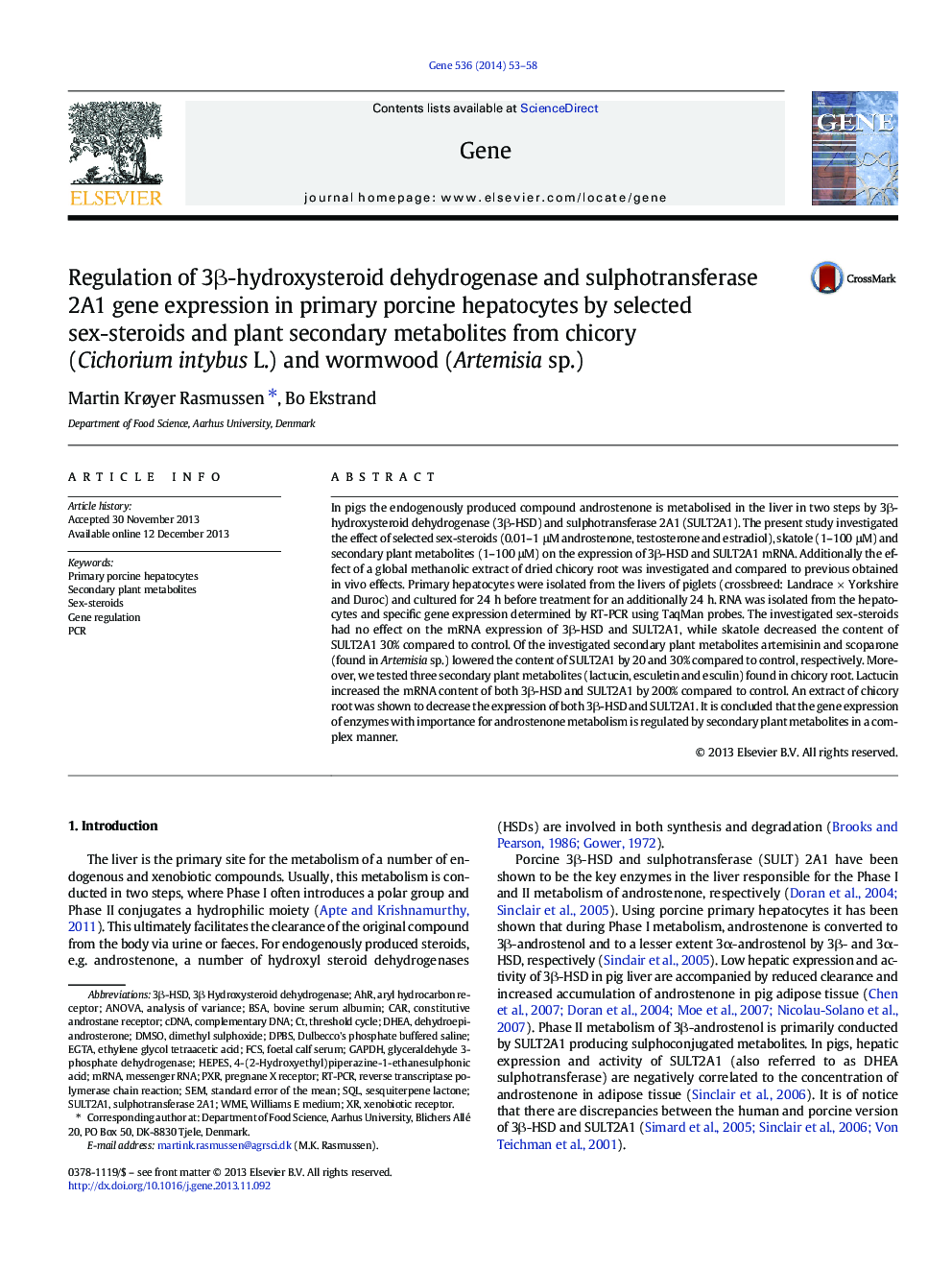| Article ID | Journal | Published Year | Pages | File Type |
|---|---|---|---|---|
| 2816623 | Gene | 2014 | 6 Pages |
•Sex-steroids did not affect 3β-HSD and SULT2A1 mRNA expression.•Secondary plant metabolites increase the mRNA expression of 3β-HSD and SULT2A1.•Global chicory root extract decreases 3β-HSD and SULT2A1 mRNA expression.
In pigs the endogenously produced compound androstenone is metabolised in the liver in two steps by 3β-hydroxysteroid dehydrogenase (3β-HSD) and sulphotransferase 2A1 (SULT2A1). The present study investigated the effect of selected sex-steroids (0.01–1 μM androstenone, testosterone and estradiol), skatole (1–100 μM) and secondary plant metabolites (1–100 μM) on the expression of 3β-HSD and SULT2A1 mRNA. Additionally the effect of a global methanolic extract of dried chicory root was investigated and compared to previous obtained in vivo effects. Primary hepatocytes were isolated from the livers of piglets (crossbreed: Landrace × Yorkshire and Duroc) and cultured for 24 h before treatment for an additionally 24 h. RNA was isolated from the hepatocytes and specific gene expression determined by RT-PCR using TaqMan probes. The investigated sex-steroids had no effect on the mRNA expression of 3β-HSD and SULT2A1, while skatole decreased the content of SULT2A1 30% compared to control. Of the investigated secondary plant metabolites artemisinin and scoparone (found in Artemisia sp.) lowered the content of SULT2A1 by 20 and 30% compared to control, respectively. Moreover, we tested three secondary plant metabolites (lactucin, esculetin and esculin) found in chicory root. Lactucin increased the mRNA content of both 3β-HSD and SULT2A1 by 200% compared to control. An extract of chicory root was shown to decrease the expression of both 3β-HSD and SULT2A1. It is concluded that the gene expression of enzymes with importance for androstenone metabolism is regulated by secondary plant metabolites in a complex manner.
